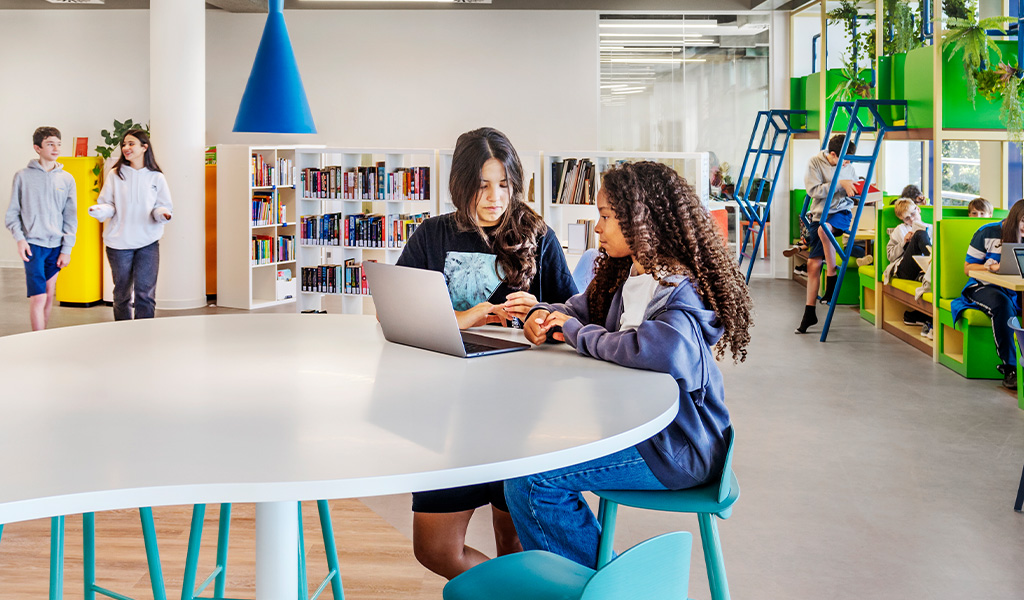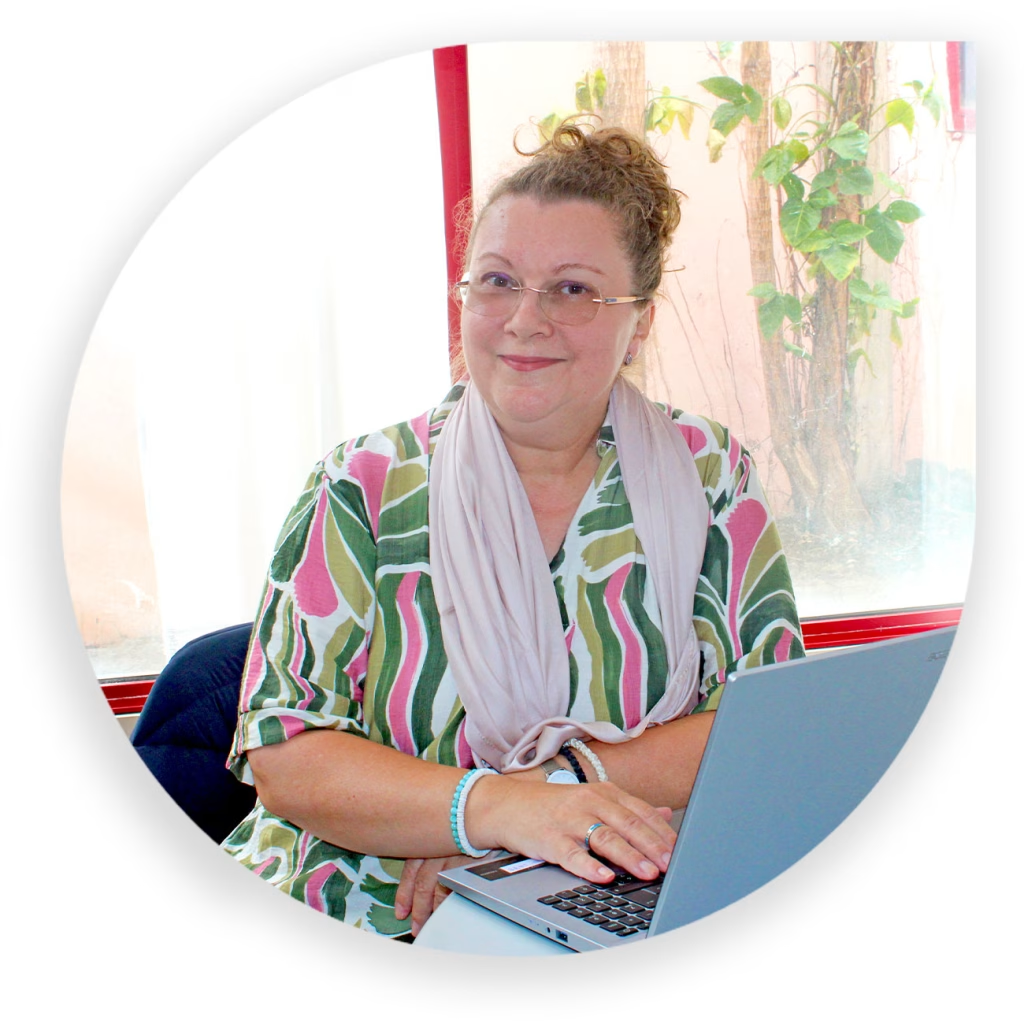16 to 18 years old
Diploma Programme
The next steps in learning
Introducing the Diploma Programme
The Diploma Programme builds on the Middle Years Programme, offering a rigorous and engaging pre-university curriculum that equips students with the skills and knowledge needed for success in higher education and beyond. Top universities worldwide recognise the Diploma Programme for its holistic approach to learning.
Focusing on the development of the whole student, the programme cultivates lifelong learning through academic subjects while strengthening Approaches to Learning skills, conceptual understanding, higher-order thinking, and metacognitive abilities.
At ISS Madeira, students are supported by passionate and highly experienced staff—many of whom are IB examiners or workshop leaders—and benefit from vibrant, flexible learning spaces designed to inspire curiosity, engagement, and motivation throughout their educational journey.


Why the Diploma Programme?
What Makes DP at ISS Madeira Exceptional
Research by Inflexion (formerly The Education Policy Improvement Center) shows that Diploma Programme students are better equipped than their peers to handle demanding workloads, manage time effectively, and meet high expectations. This success is largely due to the Approaches to Learning (ATL) skills integrated throughout all DP teaching.
The Diploma Programme develops students who:
-
Possess a broad and deep understanding across subjects;
-
Thrive physically, intellectually, emotionally, and ethically;
-
Study at least two languages;
-
Achieve excellence in traditional academic disciplines;
-
Explore the nature of knowledge through the unique Theory of Knowledge course;
-
Become globally minded, appreciating and respecting diverse cultural perspectives, promoting responsible action, and taking ownership of their own learning.
Learning Outcomes
The IB Learner Profile Explained
The IB Learner Profile is central to the International Baccalaureate philosophy, guiding the development of well-rounded students who reflect the values of the IB Framework and the school community. It identifies ten essential attributes that ISS Madeira students work to cultivate throughout their learning journey:
Inquirers
We cultivate curiosity and develop strong research and inquiry skills. Students learn independently and collaboratively, nurturing a lifelong love of learning.
Open-minded
We value our own culture and experiences while appreciating the perspectives, traditions, and values of others, remaining open to growth through new insights.
Principled
We act with honesty, integrity, and fairness, respecting the rights and dignity of others. Students take responsibility for their choices and the impact of their actions.
Communicators
We express ideas clearly and creatively in multiple languages and forms, collaborating effectively by listening and engaging with others’ viewpoints.
Knowledgeable
We explore concepts across a variety of subjects and apply understanding to meaningful situations. Students connect and engage with issues that have global significance.
Thinkers
We apply critical and creative thinking to analyse challenges and make responsible, ethical decisions. Students take initiative to solve complex problems thoughtfully.
Caring
We show empathy, compassion, and respect for others, taking thoughtful and meaningful actions to support our local and global community in today’s world.
Reflective
We thoughtfully consider our experiences, actions, and ideas, recognising our strengths and areas for growth to guide personal development and improve learning.
Balanced
We strive for equilibrium in intellectual, physical, and emotional aspects of life, understanding our interdependence with others and the environment.
Risk-takers
We embrace challenges with determination and creativity, exploring new ideas and approaches independently or collaboratively, remaining resilient and resourceful in the face of change.
Why ISS Madeira?
Key Components of the Diploma Programme
The IB Diploma Programme core supports students’ academic growth and personal development by promoting critical thinking, independent research, and active community involvement.
These core elements guide students to apply knowledge thoughtfully, develop resilience, and cultivate responsibility, equipping them with the essential skills needed for lifelong learning and success beyond the classroom.
Extended Essay
The Extended Essay is a mandatory, externally assessed research project where students explore a topic of personal interest. They present their findings as a structured piece of academic writing, developing skills in independent inquiry and critical analysis.
This culminates in a formal essay of up to 4,000 words, where students communicate their ideas and conclusions.
Theory of Knowledge (TOK)
Theory of Knowledge focuses on critical thinking and understanding the process of knowing rather than learning specific content.
The course encourages students to reflect on the nature of knowledge, make connections across disciplines, and develop awareness of their own perspectives, helping them become thoughtful and reflective learners.
CAS Programme
CAS is structured around three strands that guide student engagement:
-
Creativity: exploring and expanding ideas to produce original or interpretive work
-
Activity: participating in physical activities that promote a healthy lifestyle
-
Service: engaging collaboratively with the community to meet real needs, fostering responsibility and empathy
Our Curriculum at ISS Madeira
Diploma Programme Subject Groups
Students in the Diploma Programme select one course from each of six subject groups, gaining in-depth knowledge and understanding in Language and Literature, Language Acquisition, Individuals and Societies, Sciences, Mathematics, and the Arts.
Group 1
Language & Literature
Group 2
Language Acquisition
Group 3
Individuals & Societies
Group 4
Sciences
Group 5
Mathematics
Group 6
The Arts
The subjects offered in the school are influenced by student interest levels, requiring a minimum number of students to run a particular subject. Additionally, scheduling constraints can restrict certain combinations of subjects from being taught simultaneously. Before finalizing their choices, DP 1 students must meet with the DP coordinator and principal to discuss their subject preferences, ensure that their selected subjects are available, and confirm that the schedule aligns with their choices.
